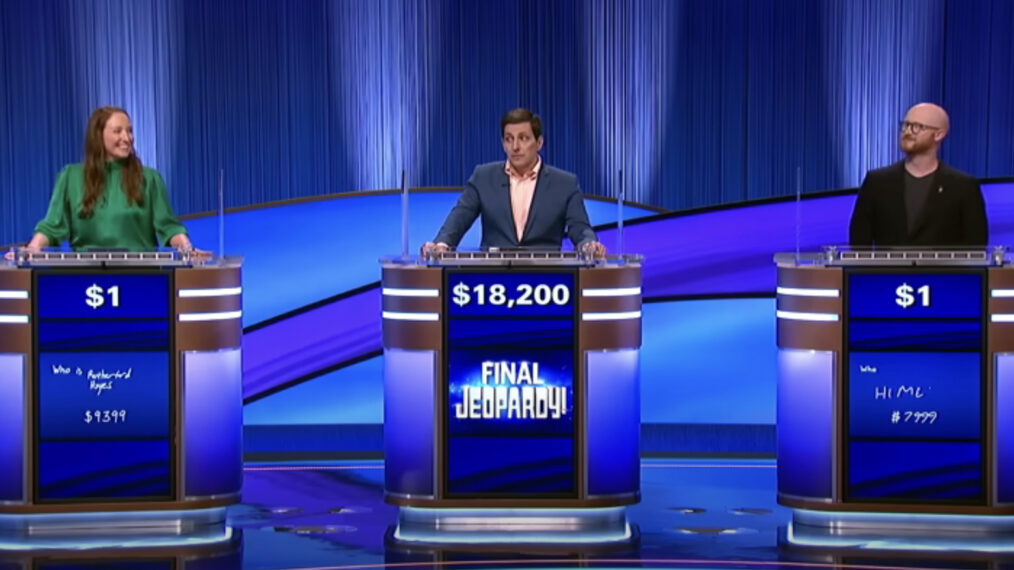‘Jeopardy!’ Fans Debate ‘Unfair’ Tiebreaker Rule That Baffled Many Viewers

Some Jeopardy! viewers were left questioning the game’s rules after two contestants finished with tied scores behind the day’s winner, but one was then adjudged to have finished 2nd and the other 3rd.
The surprisingly rare event happened at the end of the Monday, November 11 episode which featured one-day champ Rachel Marcus, a writer and consultant from New York City, facing Chris Spencer, a medical writer from Washington, D.C., and Joey DeSena, a development engineer from Raleigh, North Carolina. After nabbing all three Daily Doubles, DeSena stormed to a near runaway by Final Jeopardy. He had $18,200, Spencer had a respectable $9,400, and Marcus was right behind at $8,000.
The “19th CENTURY AMERICA” Final Jeopardy clue was, “It caused rich amusement that the name of this President, whose wife didn’t allow dancing, was similar to that of a dance. It was a triple-stumper as no one came up with the correct response of “James K. Polk.” Ken Jennings quipped, “Polk could not polka,” explaining the answer.
DeSena dropped just $703 to win and become the new champ with $17,497. But here’s where things got interesting. Marcus and Spencer both nearly went all in, so both were left with $1, grinning on either side of him. Marcus was named 2nd place and she got a consolation prize of $3,000, and Spencer was named 3rd place and given $2,000.
Fans took to social media, confused how the standings and consolation prizes were decided since they finished with the same score, some wondering if it was because Spencer was the returning champion.
“Rachel and Chris were tied at $1. Why did Rachel win the second place prize?” one fan titled a Facebook post in a Jeopardy! fan group.
“Defending champion,” claimed another, as a third joked, “Maybe they flipped the coin?” Others chimed in to share the longstanding rule: the placements are then based on the most money before Final Jeopardy.
“If two players end up tied for second place on Jeopardy!, the money is determined by looking at their scores going into the Final Jeopardy round,” a fourth user wrote. “The contestant with the higher score before the final question will officially be awarded second place, meaning they receive the higher cash prize associated with that position.”
“Because she was ahead of Chris going into FJ,” surmised a fifth.
“Alex [Trebek] mentioned this rule a lot during its first 1984-85 season,” wrote a sixth. “If two players are tied for second, after Final Jeopardy!, whomever was leading at the end of Double Jeopardy! will receive the 2nd place prize.”
Others still weren’t satisfied and wondered if the rule could be lifted or amended.
“Jeopardy! couldn’t afford to give both of them the $3,000?” asked an additional fan in the thread.
“They could pool the $3,000 and $2,000 cash prizes, and give them $2,500 each?” theorized an eighth.
“Give them what they earned,” roared another. “The runners-up are still getting ripped off. Not fair at all.”
“Interesting,” one more fan wrote. “To me both should have won $2,500 since it’s about the final score not how you got there.”








